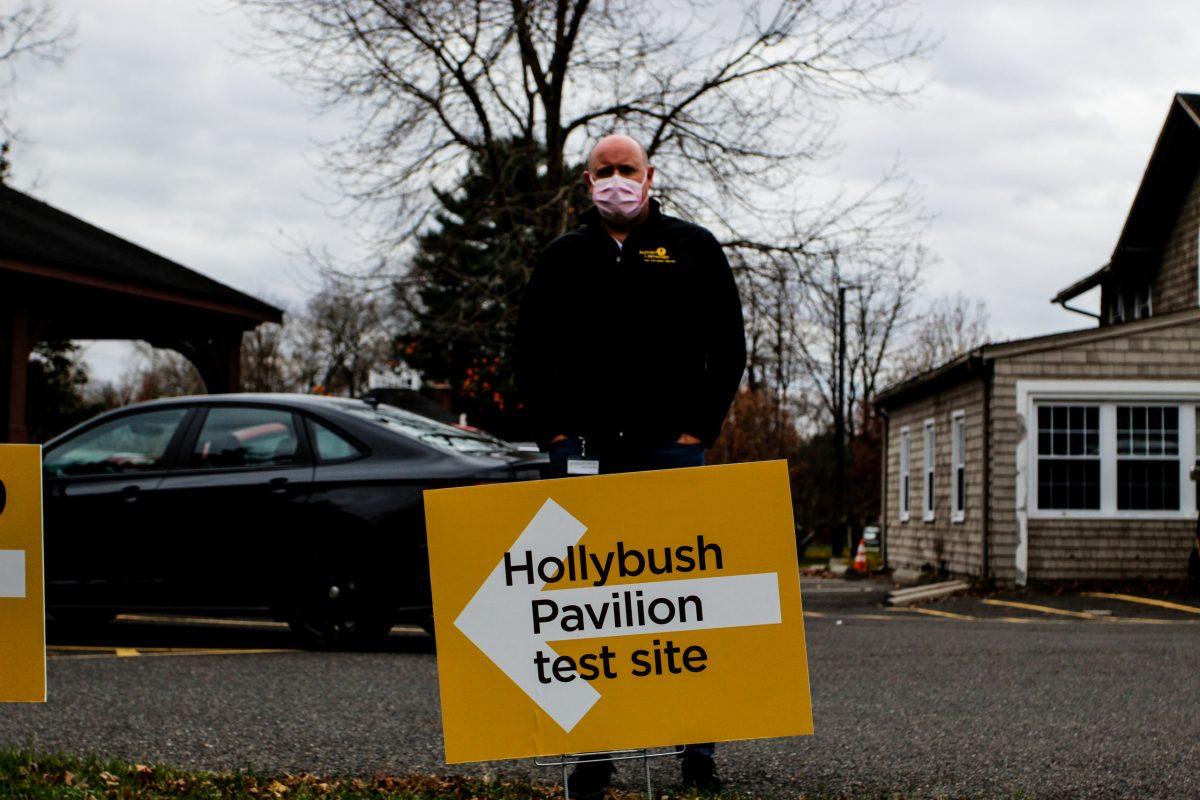“There’s no procrastination in space. You have to make a decision.”
That’s what Dr. Harold Connolly Jr., Geology Department Chair for Rowan University’s School of Earth and Environment, wants students to know about how to be successful in science. As someone whose list of colleagues includes astronauts, satellite engineers, and Neil DeGrasse Tyson himself, Connolly is in good company to understand the social conventions of outer space.
Connolly’s second piece of advice to students? “To be good at anything in life, you have to be a good communicator. But that requires that you are generous and you listen to people.”
One of the leading voices in the field of cosmochemistry, Connolly has certainly achieved the status of “good” in several activities, including both science and communication. When not teaching at Rowan, Connolly serves as a Research Associate at the American Museum of Natural History and, notably, Mission Sample Scientist on NASA’s OSIRIS-REx mission.
OSIRIS-REx will be one of the first space missions in the world in which a satellite returns to Earth from an asteroid with sediment samples. The chosen asteroid, Bennu, is small, carbon-rich, and has a high probability of collision with Earth in the next 200 years, making it ideal for sampling.
“I first got involved with OSIRIS-REx after I published a paper with some colleagues from the Smithsonian University of Maryland and the University of Hawaii Hilo on the relationship between the particular components of a meteorite to the spectroscopy of certain kinds of asteroids,” Connolly said. “Then the Deputy PI [Principal Investigator] of the space mission, Dante Lauretta, read that paper and invited me to be on the space mission. So I’ve been on since 2008.”
And what does Connolly think is the most exciting part about working on such a historic space program?
“The whole thing!” he exclaimed. “To me, it’s exciting every day to dial into a meeting and learn that there has been something new and amazing discovered, or even that there are new challenges that have been presented. But probably the most rewarding part of it is working with so many outstanding people that I have the great honor and pleasure of working with, who are amazing scientists, and engineers, all the way down to support staff. It’s just a joy to be on such a great team.”
The effort to better understand asteroid Bennu isn’t just confined to America, though: OSIRIS-REx is an international effort spanning many countries and continents. Luckily for him, international communication of science is an area that Connolly has been honing for a long time. For two months in 2015, Connolly even served as a visiting professor at Hokkaido University in Japan.
“That was one of the most interesting and rewarding experiences of my life. It’s one thing to travel to a meeting and talk to colleagues face-to-face, which is incredibly important no matter how many emails you send, but understanding the cultural system, understanding the differences between our culture system here in the U.S. and another system, such as Japan, really helps you to understand how colleagues come to thinking about problems. By learning about their system and how they do things, it offers new insight into how I can work on an everyday basis.”
Overall, Connolly believes that cultural literacy is an important skill for scientists to learn.
“Science doesn’t have borders,” he said. “The international language of science is mathematics, and it’s the international language of the world.”
Connolly first became interested in geology when he was five years old when his grandfather told him that someone interested in rocks and minerals was called a geologist. He’s always been local to the South Jersey area, attending Washington Township Middle and High Schools before eventually graduating from Haddon Heights High School. He went on to receive two Bachelor’s degrees in geology and cultural anthropology, a Master’s degree in geology, and a Doctorate degree in geology, all from Rutgers University – the first year of which he attended on the Camden campus.
Originally, he had planned to become a high school teacher in Earth science; a college professor would later convince him that he was “too smart to teach high school,” and that he “would be bored.”
“So I needed to do research and teach,” he explained. “Go get a PhD and boom, that was my life. So the generosity of my teachers is why I am where I am today.”
For his senior thesis for his geology major, Connolly did two theses: one in paleontology, and one in meteoritics and cosmochemistry. His PhD research made him the recipient of a NASA fellowship, one which led him to conduct research at the Johnson Space Center in Houston, Texas.
“What I discovered was that my real passion was time,” he said. “The recorder of ultimate time in geology is meteorites.”
To Connolly, that makes meteorites an easy passion to define in himself.
“You have to know your passion,” he said, speaking to Rowan students and freshmen, “regardless of what it is. You must know your passion. Once you find your passion, go for it. Develop those skills within you that you know you have to embellish your passion and move forward. I was told not to go into cosmochemistry and meteoritics because there are so few jobs. I ignored the advice that was given to me, and I’m very glad I did, or I would not have helped put a spacecraft in orbit.”
For comments/questions about this story, email [email protected] or tweet @TheWhitOnline.
























































































































































!["Working with [Dr. Lynch] is always a learning experience for me. She is a treasure,” said Thomas. - Staff Writer / Kacie Scibilia](https://thewhitonline.com/wp-content/uploads/2025/04/choir-1-1200x694.jpg)










































